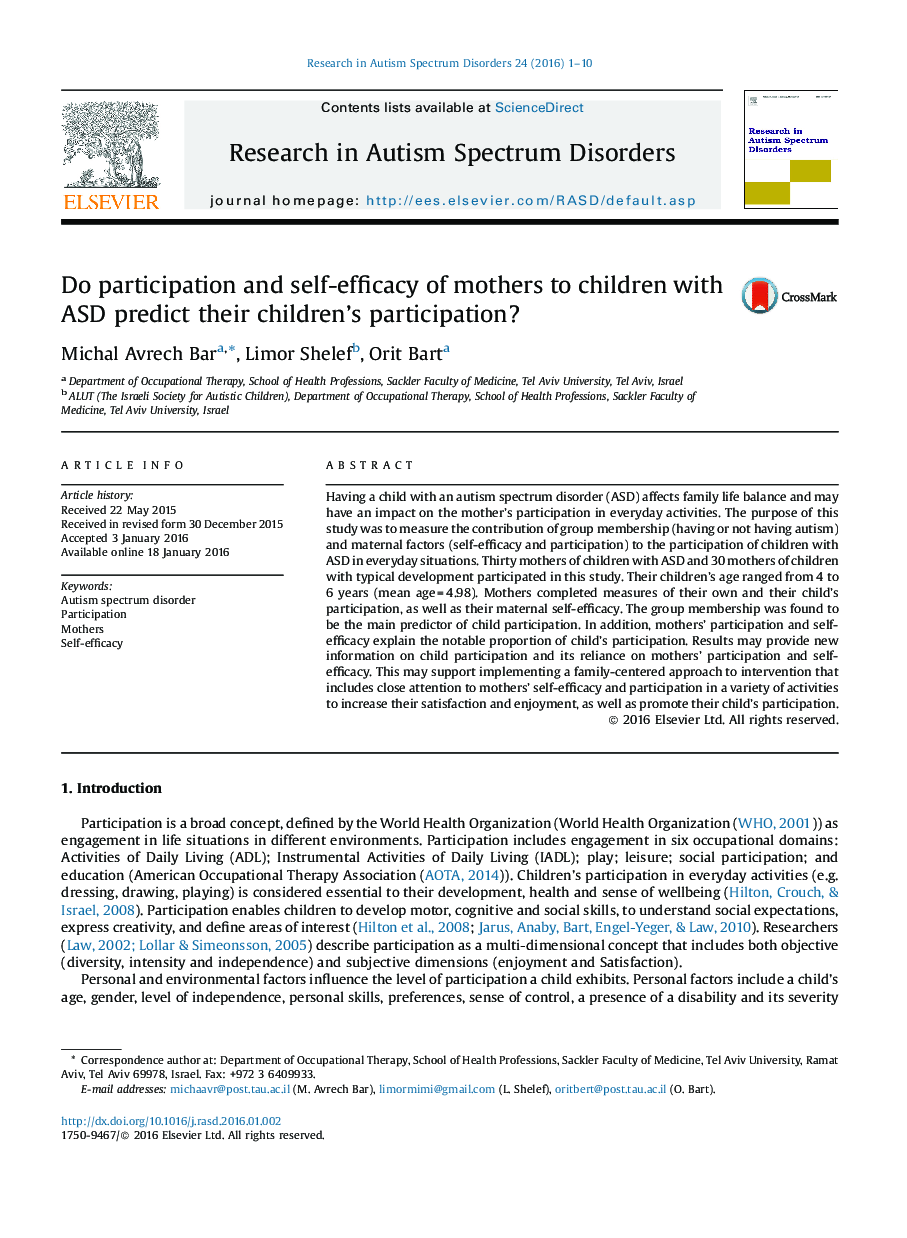| Article ID | Journal | Published Year | Pages | File Type |
|---|---|---|---|---|
| 369911 | Research in Autism Spectrum Disorders | 2016 | 10 Pages |
•Children with ASD participate in fewer activities in comparison to their peers.•Mothers’ participation explains a notable percentage of child’s participation.•Mothers’ self-efficacy predicted satisfaction from their children’s participation.•The results support implementing programs for families of children with ASD.•Programs for families should focus on mothers and their children’s participation.
Having a child with an autism spectrum disorder (ASD) affects family life balance and may have an impact on the mother’s participation in everyday activities. The purpose of this study was to measure the contribution of group membership (having or not having autism) and maternal factors (self-efficacy and participation) to the participation of children with ASD in everyday situations. Thirty mothers of children with ASD and 30 mothers of children with typical development participated in this study. Their children’s age ranged from 4 to 6 years (mean age = 4.98). Mothers completed measures of their own and their child’s participation, as well as their maternal self-efficacy. The group membership was found to be the main predictor of child participation. In addition, mothers’ participation and self-efficacy explain the notable proportion of child’s participation. Results may provide new information on child participation and its reliance on mothers’ participation and self-efficacy. This may support implementing a family-centered approach to intervention that includes close attention to mothers’ self-efficacy and participation in a variety of activities to increase their satisfaction and enjoyment, as well as promote their child’s participation.
